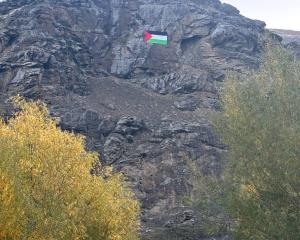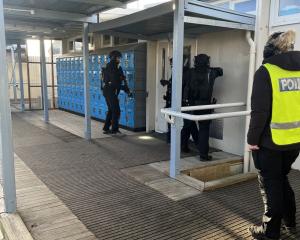A shiny metallic Airstream caravan may become the base for a "pop-up'' wine tasting facility by Sam Neill's Two Paddocks winery next to his Felton Rd vineyard.
Two Paddocks has applied to the Central Otago District Council for resource consent to operate a retail activity from that site and the matter will be considered at a hearings panel meeting next week.
The wine tasting facility and separate food stall would operate for 10-14 days from January 5 onwards, the application said.
It would be located at the "Walnut Paddock'' at the end of Felton Rd, Bannockburn, "where customers could enjoy the ambience of the surroundings and 'picnic' under the walnut trees enjoying a glass of fine Central Otago wine and excellent food.
Two Paddocks was an established premium pinot noir and riesling producer with four vineyards in all three of the major Central Otago wine sub-areas.The neighbours in Felton Rd included Terra Sancta, Felton Rd, Akarua and Mt Difficulty -"some of the most well-known and prestigious wine labels in Central Otago'' and they supported the venture, the application said.
It would be next to the Two Paddocks' "The Fusilier'' vineyard and the owner of the site had given permission.
The site was chosen, instead of the vineyard, to minimise disturbance to other vineyards which used a shared right of way, the application said.
Vineyards and wineries along Felton Rd already attracted visitors so the applicant did not expect to increase traffic on Felton Rd but would offer another venue for current visitors to visit.
The reflectivity of the caravan would have no visual impact on neighbouring properties as the caravan would be hidden by groves of trees.
The council's planning consultant, David Whitney, said the applicant also applied to "breach the rural colour palette'' by using the caravan. He questioned whether the breach of the colour rule was relevant, considering it was a caravan rather than a building or structure.
Two Paddocks planned to operate the wine-tasting facility from 11am-4pm. It expected 10-15 car movements daily and there was room on site for more than 30 parked cars.
The caravan was 9.5m long, 2.3m wide and 2.55m high.
Mr Whitney believed granting consent would not establish a significant precedent, and recommended it be approved, subject to ten conditions.











